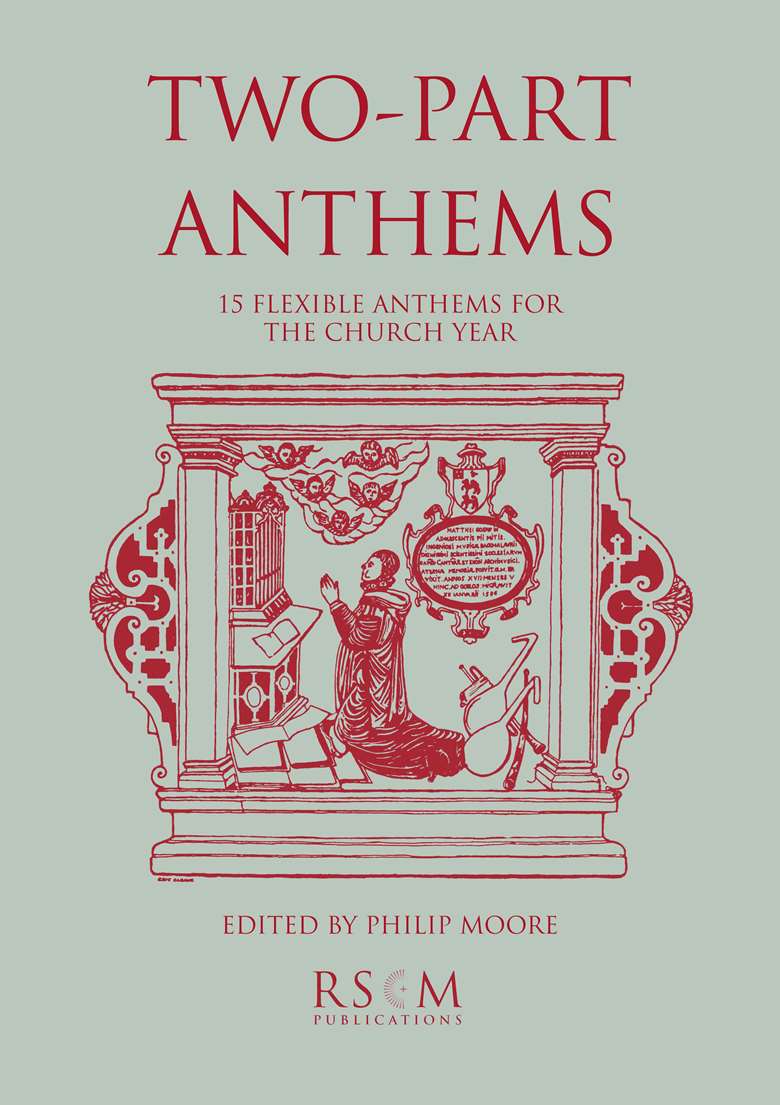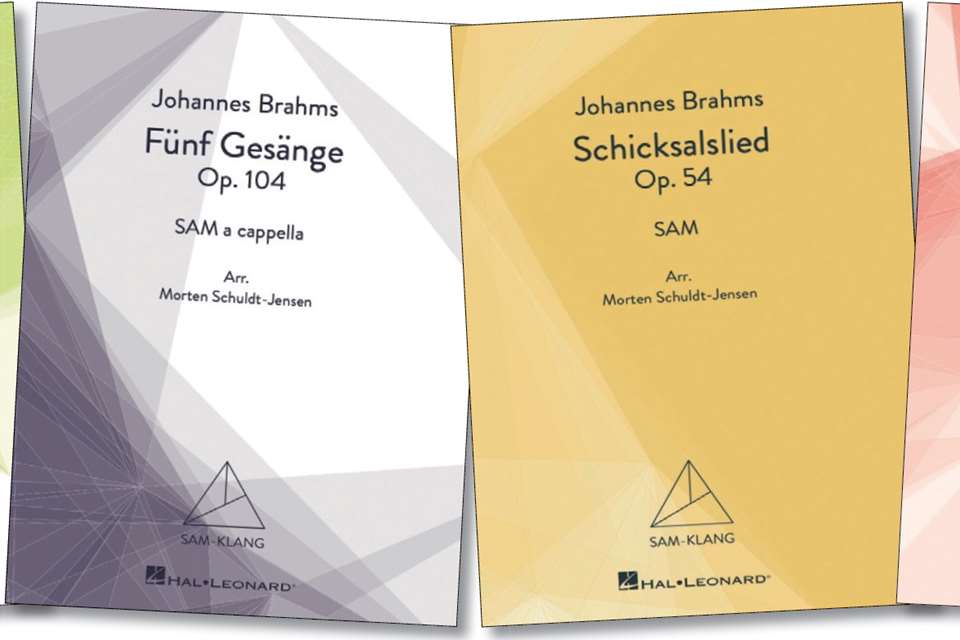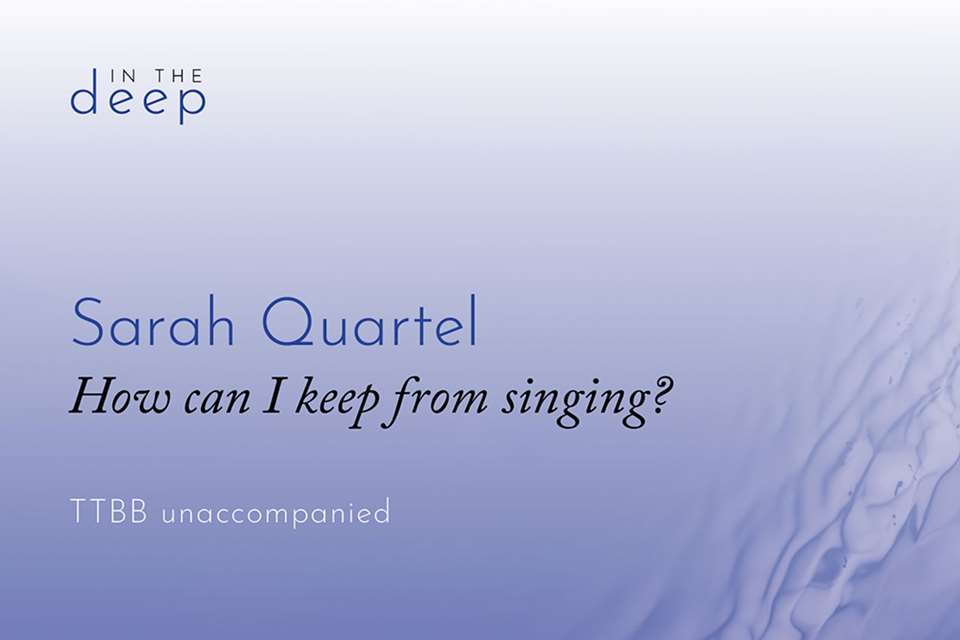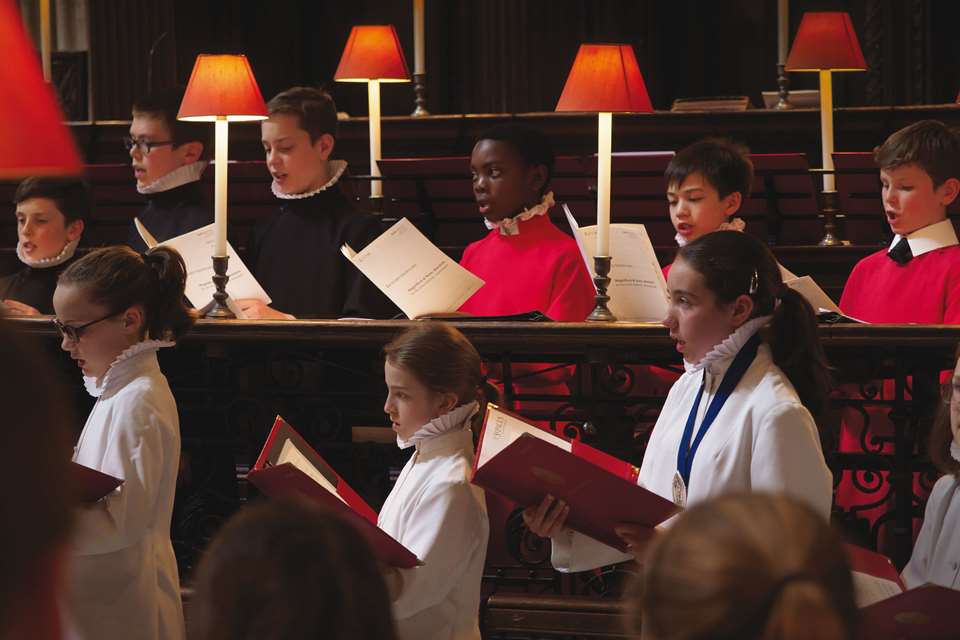Sheet music reviews: Two-Part Anthems, ed. Philip Moore
Tom Lydon
Wednesday, November 1, 2023
Tom Lydon reviews a collection of Two-Part Anthems published by RSCM.

This splendid collection of anthems by contemporary composers does just what it says on the tin. There are 15 new works, all with two vocal lines, and the book comes with permission from the redoubtable boffins at RSCM Publications to ‘flex’ the living daylights out of the scoring to suit whatever singers you have available. In his introduction, the volume's editor, York Minster Organist Emeritus Philip Moore, writes of his fondness for the sonority achieved with ‘the sopranos and tenors singing an octave apart and the altos and basses singing likewise’, and goes on to say that the pieces can also be sung ‘by sopranos and altos only, or tenors and basses only’. He concludes: ‘However you perform these lovely pieces, we hope you will enjoy singing them.’
The book doesn't bear the designation ‘easy’, but it does belong to the same series as RSCM titles Twelve Easy Anthems and Six Easy Three-part Anthems, and, indeed, it is on the decidedly ‘achievable’ end of the difficulty spectrum. Some of the works have an optional third part, and others make it clear that the second part is optional and that the piece can be sung in unison.
There is a broad coverage of the church year, with anthems available to suit Christmas, Lent, Passiontide, Maundy Thursday, Easter and Trinity. There are also anthems here that are appropriate for communions, dedications, evening services, memorial services, and the topics of ‘the church's mission and ministry’ and ‘the good shepherd’.
The editorial rationale has embraced stylistic writing, which, of course, has in turn enabled a great deal of invention and some excellent responses to the texts. Ghislaine Reece-Trapp's ‘Wilt thou forgive’ taps into something timeless with its eerie minor-mode hook, which suits the Donne text down to the ground. Sarah MacDonald's ‘Deck thyself, my soul, with gladness’, an arrangement of Crüger's melody ‘Schmücke dich’, is also an absolute joy of bouncing Baroque simplicity that can be performed as a solo line or in two parts.
Caroline Leighton's ‘Agony in the Garden’, which features an optional descant, is a brooding ballad, and Barry Ferguson's ‘Bishop Ken's Prayer’, one of the more challenging pieces in the book, is a delectably constructed tapestry of singable melismas that will reward every effort in rehearsal.
Amy Summers’ ‘I will lift up mine eyes unto the hills’ draws you in with a simple riff and melody, and has a flow that lifts the listener through some well-judged tonal diversions, like eating a beautifully presented truffle that is packed with rich, unexpected flavours. You will need your upper line to be very secure on top Fs, however, to be sure that you can pull this one off.
The editor's own contributions to the volume are simple and immaculate. Philip Moore's wider contribution to cathedral music and the English choral tradition is well documented, and in the opinion of this reviewer one of his many achievements is a mastery of short forms. His ‘Jesus, Lord, we look to thee’, uses Knecht's ‘Vienna’ tune to great effect. The two parts take a verse each, and combine for a pleasing climax in the third. His ‘Lord, be thy word my rule’ treats the melody from the first verse in strict canon for almost all of the second verse, offering choirmasters a pleasing short anthem to have up their sleeves that only requires the singers to learn one short tune.
Peter Nardone provides perhaps the simplest piece in the book with a setting of Mary L. Duncan's ‘Jesus, tender Shepherd, hear me’ that offers up a charming, positive text and the opportunity to sing in two parts using very simple vocal lines (all contained within an octave from C to C). There is also great work from Paul Trepte (a grand setting of Dykes’ hymn ‘The King of Love’), Barry Rose (an excellent, heart-warming Christmas fare), Roger B. Williams (a wonderfully mystical ‘O Sacrum Convivium’), and Joanna Forbes L’Estrange, whose ‘Let my prayer rise up’ unfolds like a rosebud with hypnotic, undulating phrases and offers a confident two-part choir something to return to again and again.
I enjoy so many things about this volume. Aside from the occasional running-together of lyrics on the page and fernickety voicing specification, which rather goes against the spirit of the thing, it is a treasure chest of miniatures. And aside from a careless sentence on the back cover, the whole thing is refreshingly gender blind, while at the same time being authored by a roughly equal mix of male and female composers. It's a great achievement from RSCM Publications; more please!





